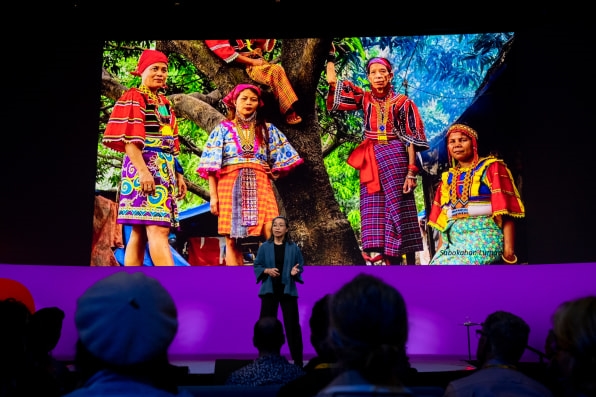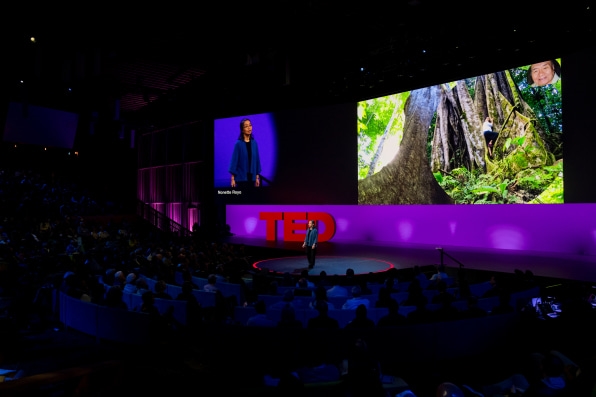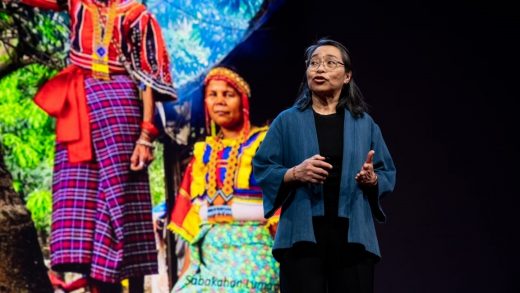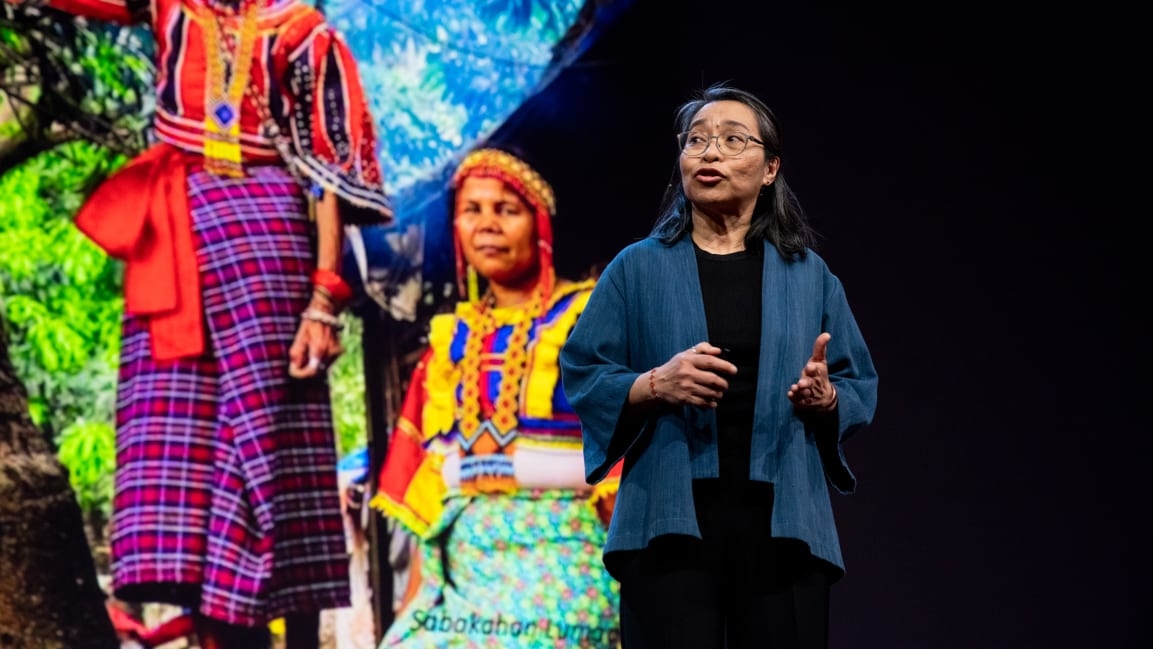This group is helping Indigenous people secure rights for 50 million hectares of land
While growing up on Camiguin, an island in the southern Philippines known for its seven volcanoes and the lanzones fruit that grows only in that region, Nonette Royo would go to the forest with her father. “Often he would look me straight in the eye and say, ‘Spirits, forests, lanzones—they nurture us, you nurture them back. You work with the people who know how’,” she said, speaking at the recent 2022 TED Conference.
For thousands of years, Indigenous people have been doing just that: Nurturing the land that nurtures them. Indigenous people are the world’s biggest conservationists, and modern scientific reviews are proving that Indigenous people manage their environment and take care of their land better than others.

[Photo: Stacie McChesney/TED]
As the executive director of the Tenure Facility, Royo helps Indigenous peoples and local communities secure their land and forest rights, financing better mapping and funding legal services to Indigenous communities who fight for their land in court. With support from TED’s Audacious Project, a funding initiative that connects change makers with philanthropists, Royo announced last week they will expand their work, protecting up to 50 million hectares of land and forests across Amazonia, the Congo Basin, and tropical Asia over the next five years. That will not only benefit 15 million people who live and protect those regions, but prevent 140 million metric tons of carbon from being released into the atmosphere over a decade.
Royo joined the Tenure Facility in 2017, when it had recently completed pilot projects that secured such land tenure for nearly 1.8 million hectares of land and forest in Cameroon, Indonesia, Liberia, Mali, Panama, and Peru. Since then, the Tenure Facility has helped Indigenous peoples advance their collective legal recognition of land and forest rights for up to 14 million hectares, benefiting 700 million people across 12 countries.
Already, Indigenous people look after and protect more than 80% of the world’s biodiversity, but in many cases, their land rights aren’t legally recognized. Or, Royo tells Fast Company, the government will say it recognizes their rights, but it fails to put any resources behind that recognition—making it difficult to stave off threats like illegal logging.
Even without government support, Indigenous people continue to protect their land and monitor against deforestation. But the government’s failure to support them is deadly: In 2020, 227 people were killed while trying to protect forests, rivers, and other ecosystems. “With their deaths, and the deaths of forests, something is also lost in us,” Royo said on the TED stage. “The ability to survive the climate crisis.”

Without legal recognition of land rights, there’s conflict. It began with colonial encroachment, and now, Royo says, “the same land holds the resources that the government wants to access and control because it’s important for the nation, for development, for advancement, for the GDP, and all of those. So there’s always this challenge of coexistence.”
The Tenure Facility’s work is helping to resolve those conflicts that have long existed between Indigenous communities and private parties like governments. It’s also part of a broader trend of coexistence, thanks to expanding climate awareness. Indigenous stewardship, experts are recognizing, is crucial to tackling climate change and global conservation goals. At the most recent United Nations Climate Change summit, Cop 26, Indigenous peoples engaged in conversations—a first for that summit—and the summit pledged at least $1.7 billion to Indigenous people in recognition of their role in protecting our land, and in particular forests.
This changing understanding of the need for Indigenous stewardship, as well as the pressure on nations to meet their climate goals, can set the Tenure Facility up for even more wins. “There is a trend to know that you will be watched, that there will be monitors…and then there is a very strong emphasis on the importance of forest,” Royo says. “These strengths are helping ground the need for the guardians of the standing forests.”
Fast Company , Read Full Story
(38)



